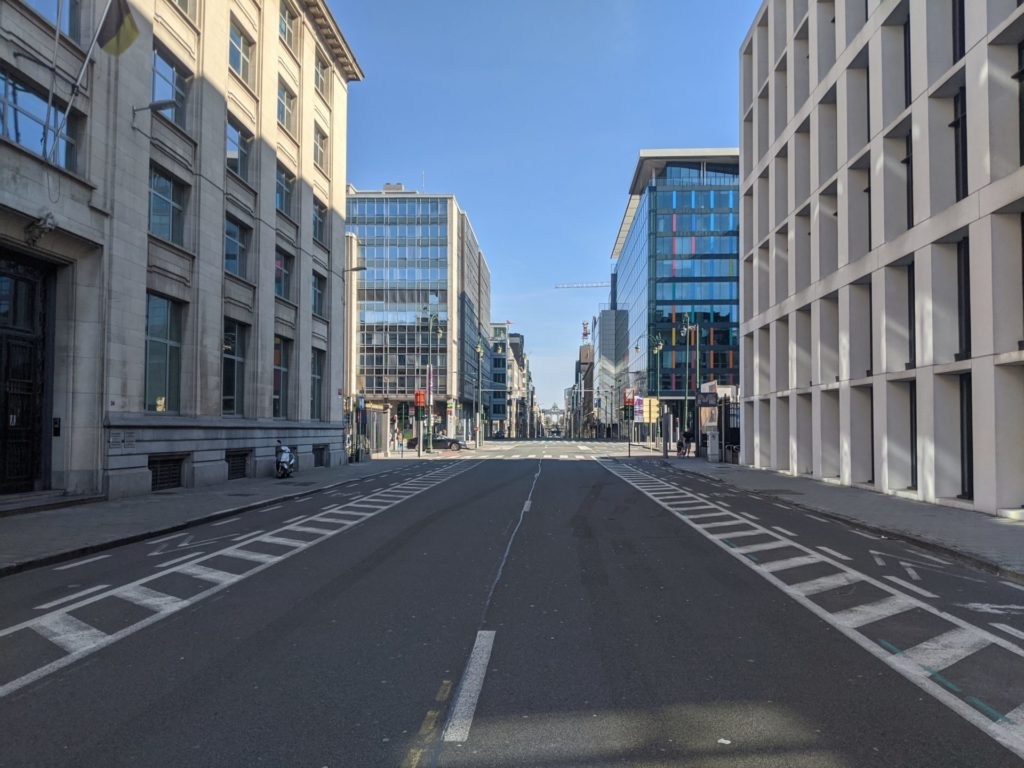While the Netherlands opted for a new full-blown lockdown "as a precaution" for the festivities, experts and politicians are divided on whether Belgium should follow its neighbour's example.
As infections are decreasing steadily, but the highly infectious Omicron variant is getting stronger, the Netherlands announced this weekend that it was closing bars, restaurants, schools and non-essential shops and limiting the number of guests in someone's home until mid-January.
On Monday, prominent Dutch virologist Ab Osterhaus stated in De Morgen that other countries in Europe, including Belgium, should also take "extra measures."
In the Dutch TV programme Op1, Belgian virologist Marc Van Ranst also spoke about Osterhaus' statements, and pleaded with the Government to "act on the concerns that are prevalent now."
"If you are concerned afterwards, the whole epidemic is already over," he said. "In crisis management, you sometimes have to make decisions based on 20% of the information. You cannot take that risk."
However, Van Ranst is not expecting an immediate lockdown in Belgium. "Or they will go to great lengths not to call it a lockdown. But that there should be tighter restrictions as soon as possible only seems logical to me."
Last Friday, virologist Steven Van Gucht already stated during a press conference that the current measures "might just not be enough."
"We will have to rely on the booster shots for a large part. That will help us more and more," he said. "But the question is whether it will be enough to keep Omicron in check."
'Heading for a worst-case scenario'
In the meantime, other experts - such as professor-emeritus of immuno-virology Guido Vanham of the Institute of Tropical Medicine and the University of Antwerp - are more categorical.
"We should follow the Dutch example," he said on Flemish radio. "We know what is coming. You cannot doubt that anymore, because we have already experienced it a few times. The predictions about the Delta wave have come true perfectly."
"If we do not take measures now, we are heading for a worst-case scenario," said Vanham. "That will have dramatic consequences for hospitals and also for non-Covid patients."
However, Walloon Health Minister Christie Morreale this weekend stated that another lockdown "is not on the table" for the Government yet. Whether politicians will follow the experts' advice is a question that likely will not be answered until the Consultative Committee on Wednesday.
Related News
- Belgian lockdown 'not on the table yet', says Walloon health minister
- Coronavirus: the Netherlands goes back into confinement
- Belgium's neighbours tighten coronavirus restrictions
Just last week, Federal Health Minister Frank Vandenbroucke already stated that while it is likely that the current measures will remain in force, he "does not rule out extra restrictions" for the holidays.
Yet, he did not expect any restrictions on the number of contacts and the number of people allowed to gather indoors. "I do not see us deciding something like that any time soon."
Still, politicians "must move quickly" if the situation becomes worrying, Vandenbroucke added. "He who hesitates is lost, they say. That is absolutely true in the fight against a pandemic."
'Cannot keep yo-yoing'
Earlier this weekend, president of the Flemish rightwing N-VA party De Wever admitted that "great concern prevails," on VTM News. "If what is coming is bad, then it is going to be very bad."
However, he also thinks that it is still too early for a lockdown. "But of course, you cannot rule out anything."
Like Van Gucht, he advocates "measures that we can sustain for a long time," and adding that "this yo-yoing to a lockdown and then let everything loose and then go into lockdown again... I do not think we can keep that up for years, and all of this might stay for a really long time."
Vanham is mainly bothered by the hesitation of policymakers: "we have seen during the Delta wave that there was a lot of hesitation to take measures, and it was not clear to anyone what was possible and what was not."
"There simply has to be a drastic reduction in contacts between people. That has to be very clear. We have been able to do that in the past," he added.
For Vanham, the government is supposedly putting the responsibility on the citizens, but they do not understand it anymore. "If we still want to be on time, we must do as in the Netherlands: close everything, now."
He added that while he understands that it is not easy, "the Dutch understand the signals from their government better now than we understand the unclear signals from our government."
According to Van Ranst, a lockdown is "politically difficult to achieve. And politics is the art of what is possible."

